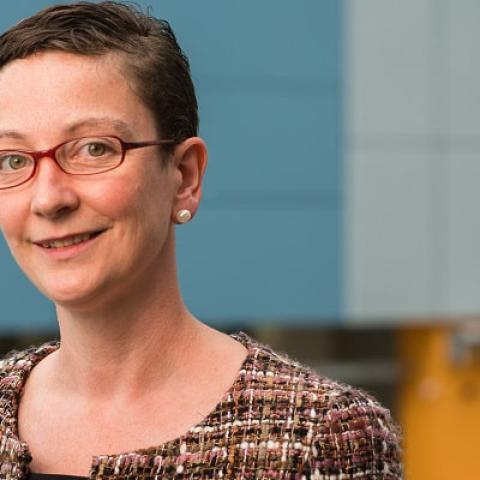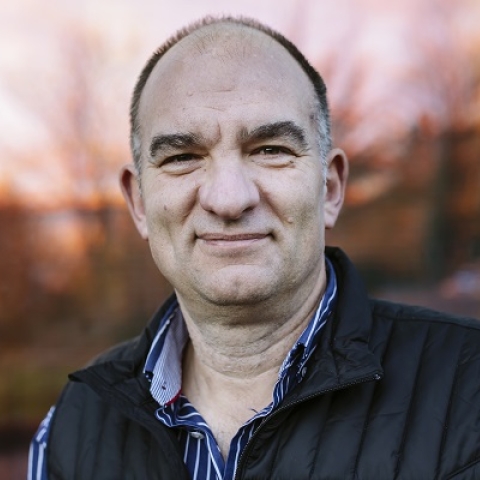

“I must introduce you to Grit,” said the then Director of the Office of Fair Access (forerunner of the Office for Students), Professor Les Ebdon. He was visiting the University of Portsmouth looking at good practice and had been talking to Sherria Hoskins about her research.
Grit really resonated with Sherria. As an undergraduate in the early 90s, she had a strong sense that she did not ‘fit in’ at university. And then there is her research area: growth mindsets especially around confidence, expectation, and the impact on attainment. Sherria takes a social cognitive approach to understanding how learners’ beliefs about themselves and the world around them impact their motivation, the choices they make, the way they respond to challenges, and how it impacts their learning.
At the same time, she was seeing so many students put off learning, disabled by fears and self-theories arising from their backgrounds and life experiences: the self-concepts, the ‘I’m not good enough’ narrative that has students stay isolated in their rooms. It’s a narrative that says, ‘if I’m not fitting in it must be because there is something wrong with me. All I need to do is get myself fixed and then I’ll feel like I’ll belong’.
What is Grit?
But Grit is not about fixing the learner. In fact, Grit does not believe that students need to be fixed at all. Grit believes that every student already has everything they need to make a success out of their time at university – it’s just that, sometimes, some students need support so they can see that too.
So Sherria brought Grit to the University of Portsmouth, at first to work with staff. The feedback was very positive: workshops were “absolutely brilliant”. She describes how “it really made staff think about themselves and how they work with others”.
Then it was the turn of students. In intensive workshops, Grit led groups of students through a series of structured conversations that uncovered the self-limiting attitudes and blind spots they didn’t know were there. They looked at the issues, the blocks, the sticking points that were getting in the way of them having the best possible student experience.
For example, many students feel the reality of university is not living up to their expectations. When these expectations (‘you’ll make friends for life’, ‘it’s all about having a good time’, ‘it’s easier than A-levels’) don’t match their reality it can be debilitating: hang-ups get more ingrained, destructive survival patterns take over.
With Grit students come to see that what they are doing is trying to make their experience fit with the way they want it to be, not how it actually is; they see that blaming external factors (the situation, other people, the course, the university itself) is not going to get them the experience they expect.
I will be more aware of the expectations I place on myself and try and not confuse my expectations with reality to ensure I don’t get discouraged.
Portsmouth student, Grit Programme
It’s about a change in mindset
Grit’s group coaching approach means that students share experiences, frustrations and disappointments and so connect in a new way. They come to see ‘it’s not just me’. They start to get connection. A Portsmouth student described the workshop as “a really good way of understanding more about ourselves and understand everyone's in the same boat. It allowed me to analyse my actions, thoughts and behaviours to better understand why I do things. I have connected with a lot of people I didn’t even know I had things in common with”.
We saw students develop a strong sense of belonging.
Professor Sherria Hoskins, Executive Dean of Science and Health
But Grit is about more than just survival. It’s about creating the mindset to thrive. Sherria’s vision is “to have young people who would never have considered becoming a doctor to develop the confidence, the expectation and resilience, that sense of belief and identity, that it is possible for them”. Grit workshops support students to develop a greater sense of who they are and who they want to be, about what they really want to achieve in their lives, and self-belief that they can achieve it. A Portsmouth student again: “It was a really inspirational day. I learnt more about myself than I ever have before. I broke down some personal barriers that I feel have stopped me from progressing in the past”.
These can be game-changing conversations. Students are able to create breakthroughs, experience real freedoms, see new possibilities for who they could be in the world. Of course, breakthroughs cannot happen without discomfort and disruption. Any process that challenges us to look deep inside ourselves can be intimidating, unsettling and difficult.
But, in Grit’s experience, students are hungry for conversations that scratch beneath the surface, that get under the skin, that address what is really going on. In the words of another Portsmouth student, “Grit really made me think deeply about how I can develop connections not only with myself but my peers. After Grit, I am much more sure that there is a place for me at university”.
Authors: Jon Down is Director of Development at Grit Breakthrough Programmes. Grit delivers intensive personal development and coaching programmes in universities across the UK. Professor Sherria Hoskins is Executive Dean of Science and Health and the Portsmouth Medical School Development Project lead at the University of Portsmouth. Sherria sits on Grit’s Advisory Board
More Education Matters Blogs
Education Matters
23 September 2022
3 min read

Blended and connected: How do we inspire students' learning experience?
Professor Alejandro Armellini explores how the university inspires the students’ learning experience.
Blended and connected: How do we inspire students' learning experience?
16 November 2022
5 min read

T Levels: supporting the success of our students in a changing landscape
Learn more about what T Levels are and their introduction to post-16 education.
Mark Cooper
1 December 2022
5 min read

